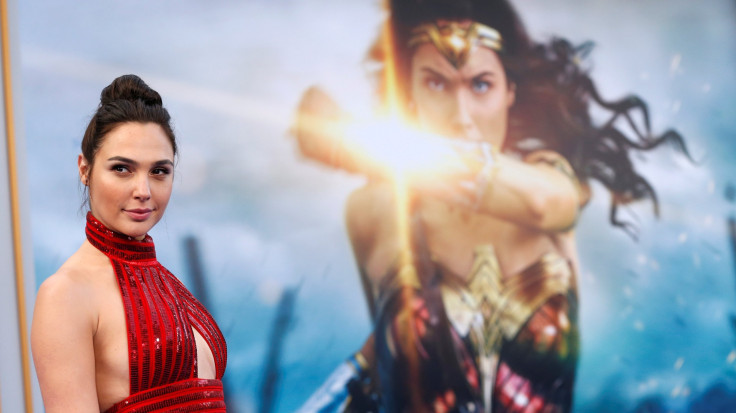Gal Gadot's Israeli Nationality Is Why 'Wonder Woman' Is Being Boycotted By Some

"Wonder Woman" and the film's star, Gal Gadot, have been delivered a taste of the lasso of truth as they've entered into non-stop war leading up to the film's box office debut. After its arrival, many potential viewers are in opposition of the Amazonian warrior's tale primarily due to Gadot's nationality.
On Friday, June 2, Fox News didn't hold back in their commentary on Gadot's nationality and the lack of "patriotism" within the film. The "Your World With Neil Cavuto" segment on Fox News pointed out that "some are calling it less American" because of Gadot's involvement.
Read: ‘Thor: Ragnarok’ Star Chris Hemsworth Responds To ‘Wonder Woman’ Actress Gal Gadot’s Challenge
"I think, nowadays, sadly, money trumps patriotism,” said guest commentator Dion Baia on Friday’s episode. “Especially, recently, I personally feel like we’re not really very patriotic, the country, in a certain sense. They want these movies to succeed internationally, so they’re going to dial back.”
Mike Gunzelman, another guest commentator from Friday's episode, added, "I think the Hollywood aspect, we see this time and time again, it’s cool to hate America these days."
Gadot's ethnic background, while a heavily debated topic for many viewers' decision to boycott the film, may not be the exact reason Lebanon and now Jordan have debated banning the film, or have banned it altogether.
Read: ‘Wonder Woman 2’ Spoilers: Everything We Know About The Sequel So Far
"Ashkenazim are one type of Jewish ethnicity," one person wrote in a Twitter thread regarding Gadot's ethnicity. "That’s what I am, what Gal Gadot is, and what Natalie Portman is." The user, however, didn't offer comment about whether or not they too will boycott the film.
Unlike Gadot's "Wonder Woman" film, Portman's films have screened in Lebanon before with no outcry. Since the two actresses both possess the same Jewish ethnicity, Gadot's ethnicity — in some cases — isn't the problem. However, her previous involvement and support of the Israeli military have made foreign territories like Lebanon reconsider showing the film.
While Gadot also played the same role in 2016's "Batman v Superman: Dawn of Justice," Lebanon had unsuccessfully attempted to ban screenings of the film because of the Israeli actress, according to the Guardian. Yet, only hours before its Lebanese debut, the country managed to ban "Wonder Woman" altogether.
Naturally, there were people who took to Twitter to show their support for the Lebanese ban.
"Next time you get your panties in a twist for Lebanon's ban on Wonder Woman, remember, this is what her and other Israeli soldiers do," one user wrote on Twitter while sharing a video of a Palestinian girl shot by Israeli soldiers.
Another Twitter user wrote: "We deserved a better Wonder Woman portraying, not a zionist who condones the killing of innocent children. Boycott the movie."
Jordan, an Arab country, is also considering placing a ban on "Wonder Woman" because of Gadot's involvement in the Israel Defense Forces (IDS). According to The Jerusalem Post, Jordan is reviewing the DC Comics flick to see "whether it meets the country’s standards and laws."
"We remind the Jordanians of their obligation to boycott the film, and we refuse to be partners to the crimes of the Zionists and to increase their profits from this film," said a statement from a Jordanian campaign against normalizing Israel, according to The Jerusalem Post. "The Arab audience will not be involved in projects that represent Zionism and the Israeli army."
While many have been vocal about their disapproval of Gadot in the titular role, it doesn't match the level of support the actress and film have received. Currently, "Wonder Woman" holds a certified fresh score on Rotten Tomatoes by over 90 percent. According to CNN, the film also raked in $103.1 million domestically during its opening weekend, making it the biggest opening in history for a female director.
© Copyright IBTimes 2025. All rights reserved.






















